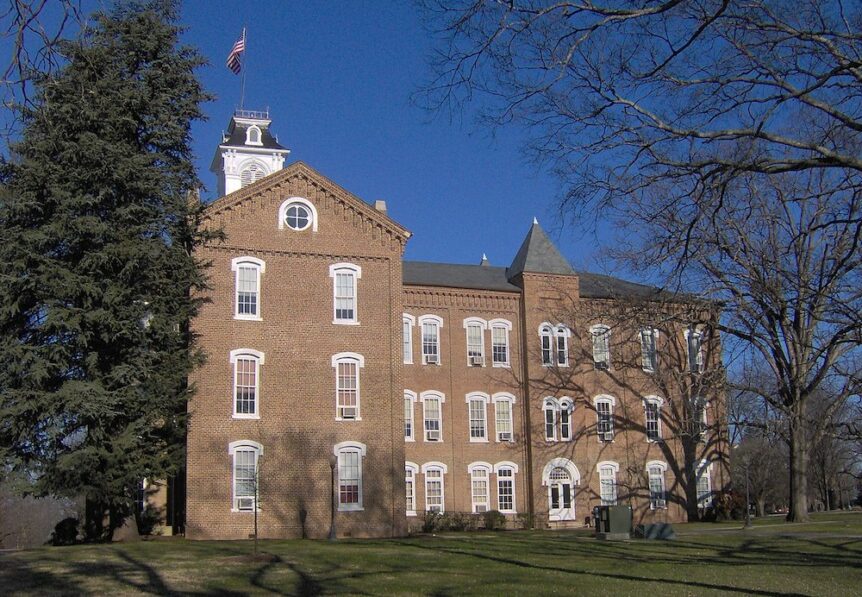Above: Anderson Hall, Maryville College. Photo: Brian Stansberry.
When the Hunger Center created Zero Hunger Academy five years ago, one of the key audiences was college students and young adults. The concept was simple – offer free resources in an easily-accessible online format that would help students develop the knowledge, skills, and networks they need to become effective agents for change. Since then thousands of people have participated in our End Hunger Challenges while earning degrees and volunteering in their communities. The range of participants has stretched from the middle school students to graduate students, and included group enrollment within high school campuses and universities.
When students engage with Zero Hunger Academy courses, they’re learning how to advocate around an issue that increasingly affects their peer groups and their own families. U.S. college students and young adults are now at greater risk of experiencing food insecurity than older generations. Research from Purdue University study shows Gen Z households were twice as likely to experience food insecurity in the first half of 2022 compared to Millennials, Generation X, and Baby Boomers.
In September 2023, high school students from Trinity Episcopal School in Richmond, Virginia, participated in the September End Hunger Challenge, a five hour course. Richmond City experiences a food insecurity rate of 11.3%.1, and several of the school’s community partnerships involve direct service volunteering with social services organizations; the addition of an anti-hunger advocacy course was a logical next step to add to their community engagement program. “This is an important topic that affects all corners of the world,” said Laura Weiler, Head of Community Engagement at Trinity. “Our community has had education around food desserts within our city and region, so it was a natural fit for continued education. Additionally, we are an IB World School, so examining things from a global perspective is important to Trinity. Finally, the online option offered the flexibility and accessibility to make it manageable for all of our students.”
Collegiate faculty have included the End Hunger Challenge with their own courses, as well. Dr. Ariane Schratter, Ph.D., is a professor of psychology within the Division of Behavioral Sciences at Maryville College in eastern Tennessee. For the past three years Dr. Schratter has used the 15-hour semester-long End Hunger Challenge as a companion study to her course, “Child Poverty and Inequality,” a 300-level offering. “The course is action-focused and doesn’t just leave the students with frustration and outrage, but also knowing what to do about it,” says Dr. Schratter. “The curriculum is unique in that factor. We are a small private school and we have the flexibility to make change. It’s more important now than ever to have this next generation empowered to enact positive change.”
Both leaders stressed that one of the biggest benefits of the course is the ability for the students to engage with the program on their own time and earn community service hours. Ms. Weiler intends to repeat Trinity’s successful participation with Zero Hunger Academy in the future, and Maryville College has embedded the course into the curriculum of the Developmental Psychology major. “I treat the course like another textbook,” explained Dr. Schratter. “We want students to better understand the place that they are currently living and to enact change on a local and state level.”
College students and high school students around the country are finding value in the courses, too: 91% say they plan on taking an advocacy action within the next month to reduce hunger in my community, and 92% would recommend the course to others.
A student at Siena College in New York shared her thoughts: “Through this challenge I was empowered to take action on hunger. I learned the nuance and depth of food insecurity and the actions that I can take to help eliminate it. I became a better advocate through this challenge and for that I am very grateful.”
Zero Hunger Academy will return with more offerings in 2024, starting with the Martin Luther King Jr. Day of Service Challenge in January. If you are interested in taking the challenge with your school or youth group, fill out our contact form for more information or get in touch directly with Partnerships & Outreach Manager Liz Pearce at [email protected].
- Feeding America; “Map the Meal Gap” interactive tool. [↩]

